Running a custom compiled Linux Kernel is always useful, specially when you are looking to enable or disable specific Kernel features, which are not available in default distribution-supplied kernels.
In this article, I will explain how to compile and use latest Linux Kernel from the sources in CentOS 7 distribution (instructions provided here are also works on RHEL and Fedora).
If you don’t want to go through these complex setup, then follow our easy article that explains How to Install or Upgrade to Kernel on CentOS 7 using third-party RPM repository.
Install Required Packages for Kernel Compilation
First, make sure to update your software package repositories, install the development tools needed for compiling a kernel, and install the ncurses library using the following yum command.
# yum update # yum install -y ncurses-devel make gcc bc bison flex elfutils-libelf-devel openssl-devel grub2
Compile and Install Kernel in CentOS 7
Download the latest Kernel 4.17 sources using wget command under /usr/src/ directory or you can also download the latest kernel by going to kernel.org.
# cd /usr/src/ # wget https://cdn.kernel.org/pub/linux/kernel/v4.x/linux-4.17.11.tar.xz
Extract the archived files and change directories using following commands.
# tar -xvf linux-4.17.11.tar.xz # cd linux-4.17.11/
Configure the Kernel in CentOS 7
The Kernel must be correctly configured with the following required configuration options within the CentOS 7 environment.
CONFIG_KVM_GUEST=y CONFIG_VIRTIO_PCI=y CONFIG_VIRTIO_PCI_LEGACY=y CONFIG_BLK_DEV_SD CONFIG_SCSI_VIRTIO=y CONFIG_VIRTIO_NET=y CONFIG_SERIAL_8250=y CONFIG_SERIAL_8250_CONSOLE=y
I strongly suggest you to copy the running Kernel configuration (.config) from the /boot directory to new kernel linux-4.17.11 directory.
# cp -v /boot/config-3.10.0-693.5.2.el7.x86_64 /usr/src/linux-4.17.11/.config
Now run the make menuconfig command to configure the Linux kernel. Once you execute the below command a pop up window appears with all the menus. Here you can enable or disable certain kernel features. If you unfamiliar with these menus, just hit ESC key to exit.
# cd /usr/src/linux-4.17.11/ # make menuconfig
Once your kernel configuration options are set, click on Save to save the configuration interface and exit from the menu.
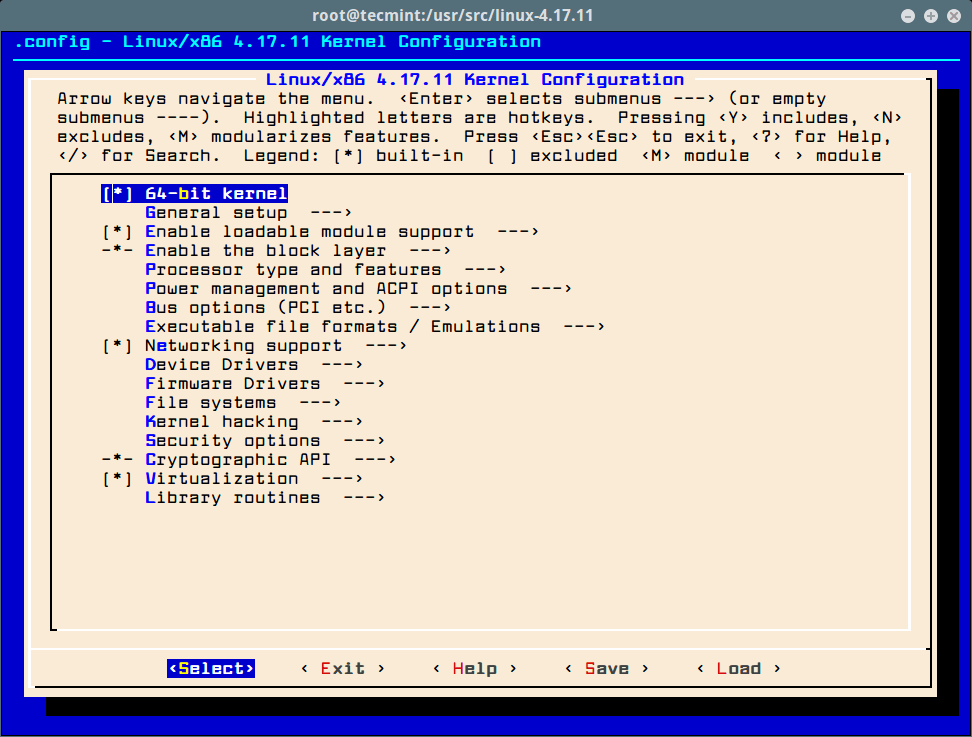
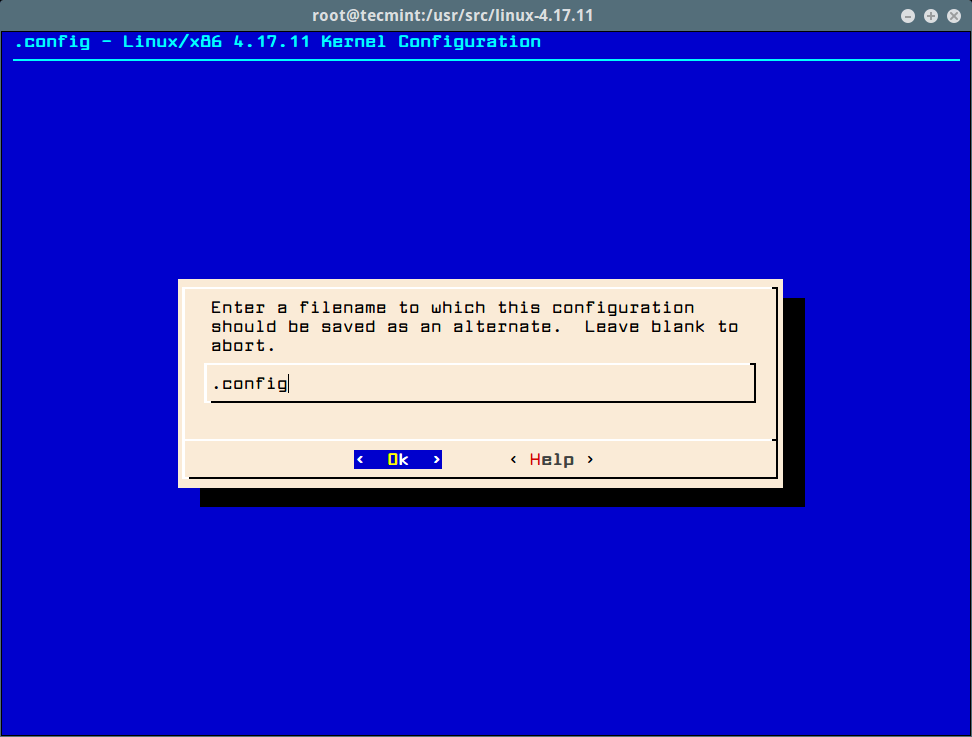
Compile the Kernel in CentOS 7
Before starting kernel compilation, make sure your system has more than 25GB of free space on the file system. To confirm, you can check the file system free space using df command as shown.
# df -h
Now compile and install the kernel and modules using following commands (it may take several hours). The compilation process place files under /boot directory and also make a new kernel entry in your grub.conf file.
# make bzImage # make modules # make # make install # make modules_install
Once the compilation completes, reboot the system and verify newly installed Kernel.
# uname -sr
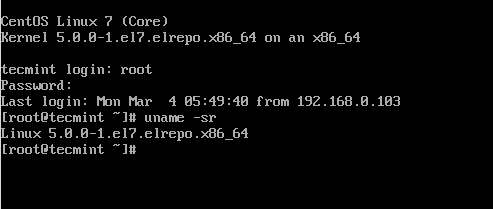
That’s it. I hope this article will be much helpful to you all. If you’re facing any problems or difficulties while compiling or installing kernel feel free to ask or post your questions using our comment form below.

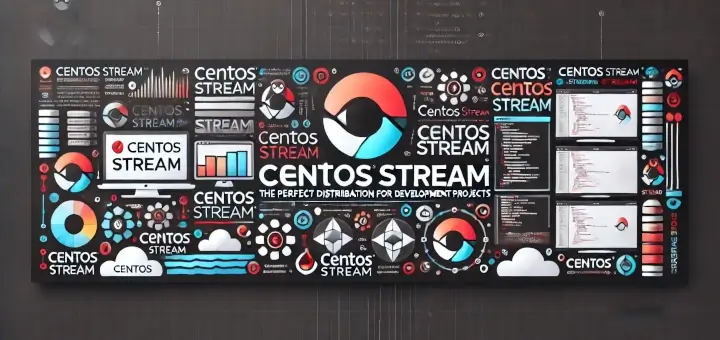

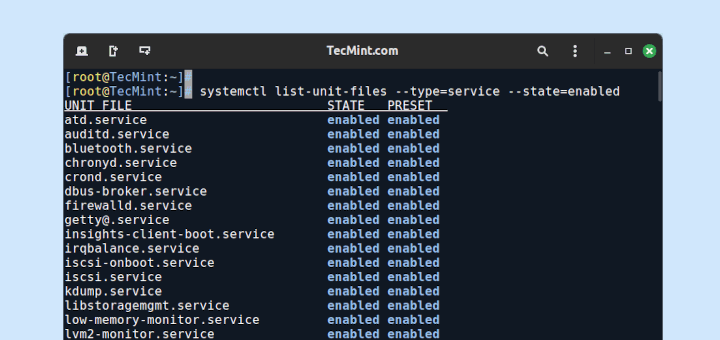

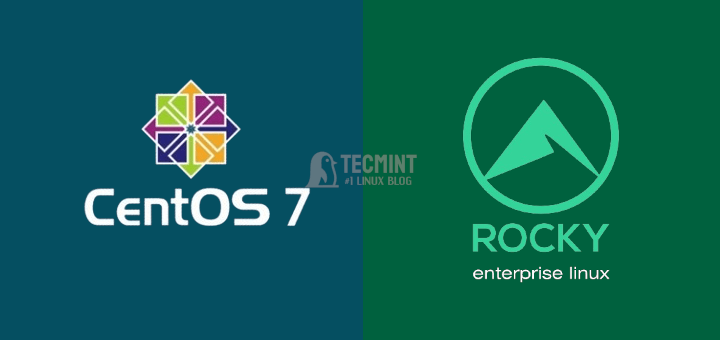
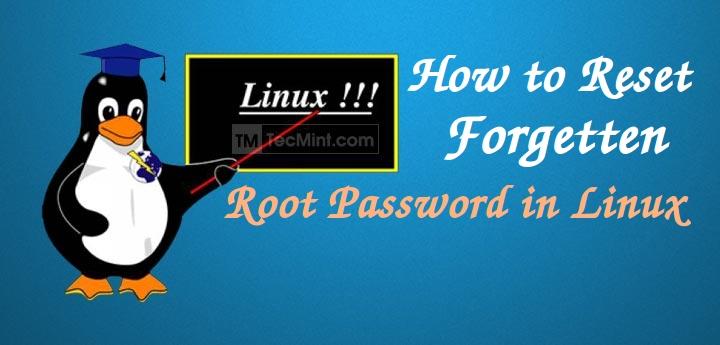
Hello,
I have built hundreds of kernel rpm packages, and all the documentation that I have read says to never build kernels as root. Yet that is what you indicate here. Can you explain? Thanks.
After make modules_install, issue the following,
or just type kernel version instead,
to rebuild initramfs and avoid boot failures.
Hi Ravi
Here we are doing this kernel upgrade using ELRepo (kernel-ml), the main intention here is to keep the Linux box safe from all the latest vulnerabilities.
I google and found that people also do security updates using yum, so my question is do we really need to upgrade the kernel from 3.10 to 5.4 using kernel-ml of ELRepo or just doing security update using yum to existing stable kernel us enough?
just need your valuable suggestion, as you must have come across such experience
Regards
Manoj Raul
@Manoj,
I never upgrade kernels, unless any specific application requires a specific kernel version.
Regular security updates are enough to keep our system safe from vulnerabilities.
Hi,
I able to compile the CentOS 7 kernel from 3.10.0-693.11.6.el7.x86_64 to 5.xxxxx series. Now my question is that to keep our os safe and to avoid new vulnerabilities we are doing
yum -y updateevery 1 month time.so my question is, if we upgrade the kernel from say 3.10 to 5.x. Can we still able to do
yum -y updateor install new software?As we use to do on 3.10 kernel?
Regards
Manoj Raul
@Manoj,
Yes, you can run
yum -y updatecommand even after multiple versions of Kernel installed on the same system..Thanks, Ravi for your valuable feedback.
One more question is in mind
which method is safer and stable as per your experience, if possible provide me pros and cons.
1) ELRepo, a third-party repository
2) customized kernel compilation from kernel.org
@Manoj,
I think the easier and safest way to install new Kernel is using ELRepo only, as it offers an easy way of upgrade when new kernel releases…
Installing Kernel from the source is hard because you need to manually compile modules as per your requirements, also it time-consuming process…
Thanks Ravi
Sequence for kernel compilation are wrong.
It should be like(Centos7):
In make old config command, it is asking for user inputs in every line. Do we have any command line arguments to pass so that it does not ask for user inputs??
@Vedula,
This article is too old and haven’t been updated a while, the latest Kernel is 4.15 and we are in process of updating this article with latest instructions for CentOS/RHEL based distributions. Till then stay tuned for more updates..
Hi,
Is it ok to delete /usr/src/linux3.5 directory after compiling and installing and booting into 3.5 kernel
Hi, I did it by following your instructions but it seems that the kernel version did not change using uname-r…
I am trying this on RHEL 6.6 , the `make ` works fine but at the end of running the `make modules_install install` command I get the following error
DEPMOD 3.5.0
sh /usr/src/linux-3.5/arch/x86/boot/install.sh 3.5.0 arch/x86/boot/bzImage \
System.map “/boot”
ERROR: modinfo: could not find module vsock
ERROR: modinfo: could not find module vmware_balloon
ERROR: modinfo: could not find module vmci
[root@nckmvdsla11400 linux-3.5]# uname -r
2.6.32-504.16.2.el6.x86_64
Can someone please help
@Rupam,
It seems you’re upgrading your Kernel version without rebuilding the vmware drivers. To rebuild the modules type the following command:
And then try again to compile your Kernel, hope it will help..
Hi when i try this command after the zip extraction step it gives me the following error:
-bash: vmware-modconfig: command not found
@Ravi – Do you have any updates for me
@Rupam,
This article is little outdated, and really don’t know about error you getting, give us some time to update this article with the latest release to fix some bugs.
Also add, one need to go and edit /etc/grub.conf and set default to the new kernel & reboot.
Finally uname -r
Hi,
I tried upgrading RHEL-6.5 to 3.5 Kernel.
I got this error:
cp: accessing `/lib/modules/3.5.0/kernel/sound/usb/usx2y’: Not a directory
INSTALL sound/usb/usx2y/snd-usb-usx2y.ko
mkdir: cannot create directory `/lib/modules/3.5.0/kernel/sound’: Not a directory
cp: accessing `/lib/modules/3.5.0/kernel/sound/usb/usx2y’: Not a directory
INSTALL /lib/firmware/acenic/tg2.bin
install: writing `/lib/firmware/acenic/tg2.bin’: No space left on device
make[1]: *** [/lib/firmware/acenic/tg2.bin] Error 1
make: *** [_modinst_post] Error 2
Please let know if we have any work arounds.
Thank You,
Munu
Check and make sure you’re using 64 bit OS. The reason is 3.5 kernel supports only 64 bit version. It will not support 32 bit OS.
I also get the error when install (make modules_install install)
there only 512RAM, but I set 2GB swap (seems it won’t use swap when I check it via free -m)
the error: ( hope for your help, thanks very much )
DEPMOD 3.5.0
/usr/src/linux-3.5/scripts/depmod.sh: line 37: 8277 Killed “$DEPMOD” “$@” “$KERNELRELEASE”
make: *** [_modinst_post] Error 137
Thank you for this guide. I just tested this successfully on a CentOS 6.4 system with kernel 3.9.4.
Apart from the dependencies already mentioned in the article, on a freshly installed minimal CentOS 6.4 I also needed make and bc.
Note that “make menuconfig” allows you to select the already running kernel’s configuration file (resides in /boot/), and accepts the defaults for all options that were introduced between the old and the new version of the kernel, whereas “make oldconfig” automatically finds the configuration file in /boot/ and asks you questions for all the new configuration options.
Once again, thanks for the guide!
Hi
Upgrading CentOS 6.3 64-bit to 3.5 kernel.
It is installed on an MSI netbook (wind u135) 1GB of RAM.
I have successfully completed all the steps up to the 2nd last one .
When doing a make modules_install install I get :
Out of memory : Kill process 11891 (depmod) score 861 or sacrifice child
Killed process 11891, UID 0, (depmod) total-vm:1961888kB, anon-rsss:850832kB,
file-rss:8kB
/usr/src/linux-3.5/scripts/depmod.sh: line 37:11891 Killed
make: *** [modinst_post] Error 137
Do I need more than 1GB of RAM to install the new kernel ? Any ideas for workarounds ?
Thank you